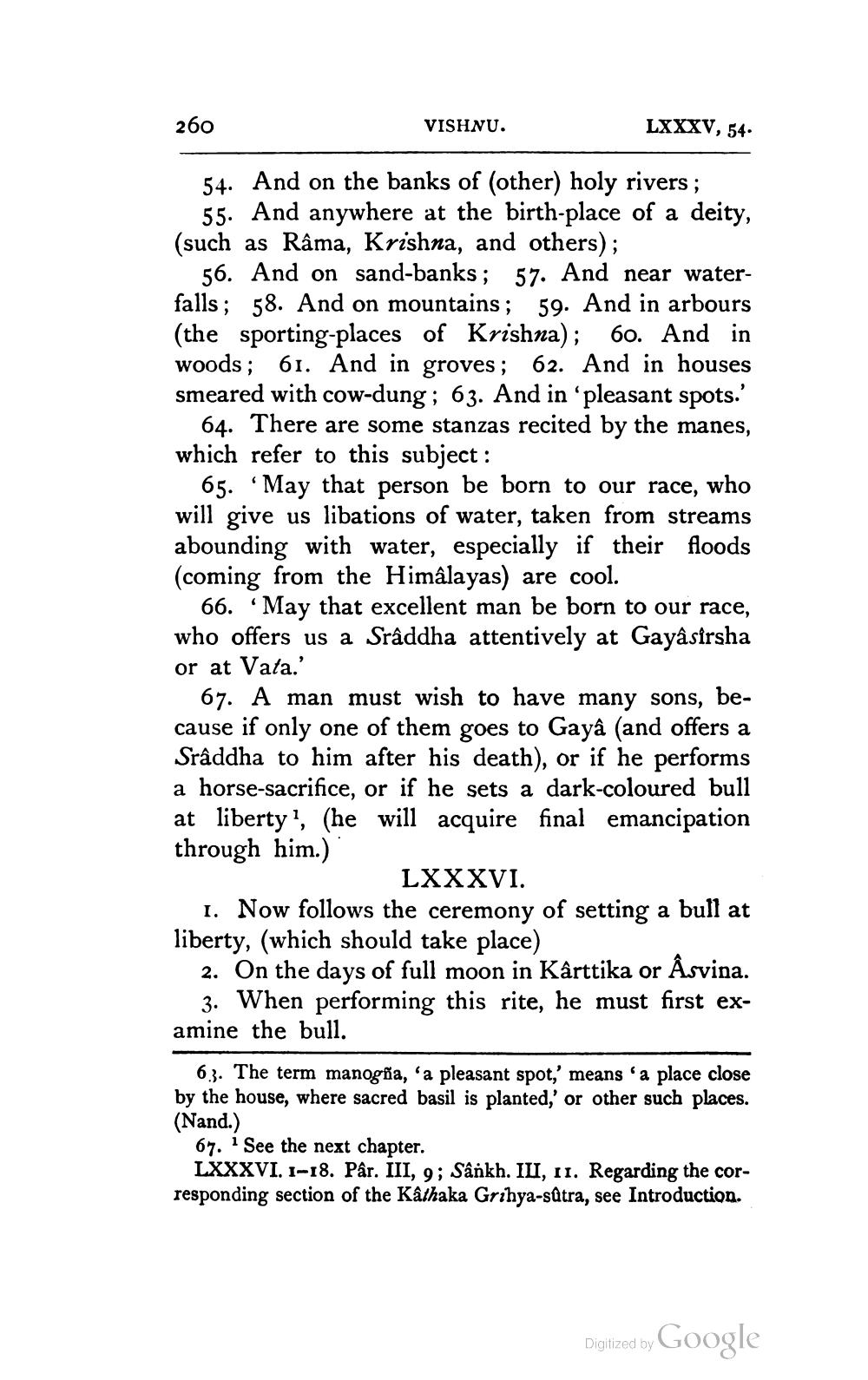________________
260
VISHNU.
LXXXV, 54
54. And on the banks of (other) holy rivers ;
55. And anywhere at the birth-place of a deity, (such as Râma, Krishna, and others);
56. And on sand-banks; 57. And near waterfalls; 58. And on mountains; 59. And in arbours (the sporting-places of Krishna); 60. And in woods; 61. And in groves; 62. And in houses smeared with cow-dung; 63. And in 'pleasant spots.'
64. There are some stanzas recited by the manes, which refer to this subject :
65. May that person be born to our race, who will give us libations of water, taken from streams abounding with water, especially if their floods (coming from the Himalayas) are cool.
66. May that excellent man be born to our race, who offers us a Sraddha attentively at Gayâsîrsha or at Vała.'
67. A man must wish to have many sons, because if only one of them goes to Gayâ (and offers a Sraddha to him after his death), or if he performs a horse-sacrifice, or if he sets a dark-coloured bull at liberty?, (he will acquire final emancipation through him.)
LXXXVI. 1. Now follows the ceremony of setting a bull at liberty, (which should take place)
2. On the days of full moon in Kârttika or Åsvina.
3. When performing this rite, he must first examine the bull.
63. The term manogña, 'a pleasant spot,' means 'a place close by the house, where sacred basil is planted,' or other such places. (Nand.)
67. 1 See the next chapter.
LXXXVI. 1-18. Par. III, 9; Sankh. III, 11. Regarding the corresponding section of the Kathaka Grihya-stra, see Introduction.
Digitized by Google




